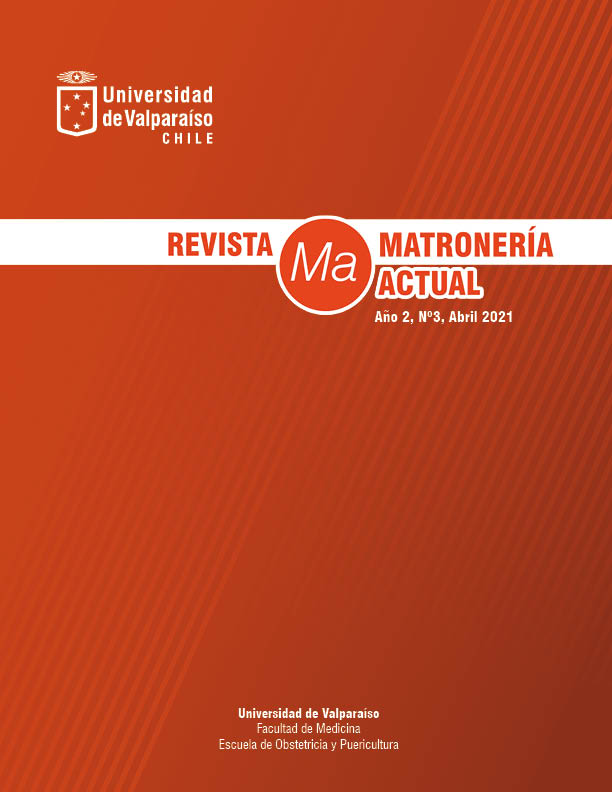Resumen
La nutrición, sin duda, es un factor que determina el crecimiento fetal y la vida posterior al nacimiento. El estado nutricional de la madre y su efecto directo en el recién nacido ha sido ampliamente estudiado. No obstante, existen vías indirectas que no se han analizado mayormente, como la ganancia de peso durante el embarazo. El objetivo del estudio fue evaluar el efecto del peso pregestacional mediado por la ganancia de peso gestacional sobre el peso del recién nacido.
Metodología: Diseño Observacional de cohorte histórica.
El análisis de los datos incluyó estadística descriptiva utilizando chi2 y Mann Whitney. Para evaluar el efecto directo y/o mediado de las variables, peso habitual de la embarazada (peso previo al embarazo) y ganancia de peso gestacional sobre el peso del recién nacido, se utilizaron modelos de ecuaciones estructurales.
Resultados: De manera directa el peso habitual de la mujer afecta el peso del recién nacido, de modo que, por cada kilo de aumento materno, el peso del niño aumenta 9,7 gramos. Adicionalmente, se pudo encontrar que, por cada kilogramo de ganancia de peso materno, el peso del niño aumentó 17,47 gramos.
Conclusiones: Los hallazgos son de gran importancia, ya que si bien, iniciar la gestación con un peso materno adecuado es importante para el bienestar del recién nacido, este estudio sugiere que el impacto de la alimentación en el proceso es mayor, por lo que dirigir estrategias de adecuada alimentación en la gestación es primordial.
Referencias
Masud JL, Zárraga Y, Reyes AB, Reyes RÁ, Ortuño AD. Efecto del estado nutricional de la madre sobre el neonato. Pediatría de México. 2011;13(3):103–8.
Kwon EJ, Kim YJ. What is fetal programming?: A lifetime health is under the control of in utero health. Obstetrics and Gynecology Science. 2017;60(6):506–19.
C.G. Redondo Figuero1, A. Santamaría Pablos2, J. Mazaira Salcedo3 MROO, P.M. De Rufino Rivas5. Crecimiento fetal, nutrición de la embarazada y teoría del programming fetal. Bol Pediatr. 2013;53(53):2–12.
Mission JF, Marshall NE, Caughey AB. Pregnancy Risks Associated with Obesity. Obstetrics and Gynecology Clinics of North America. 2015;42(2):335–53.
MINSAL. Vigilancia del Estado Nutricional de la población bajo control y de la lactancia materna en el sistema público de salud de Chile. Ministerio de Salud Subsecretaria de Salud Pública División Políticas Públicas Saludables y Promoción Depto . de Nutrición y. 2018;128.
Araya Bannout MA, Padilla O, Garmendia ML, Atalah E, Uauy R. Obesidad en mujeres Chilenas en edad fértil. Revista Medica de Chile. 2014;142(11):1440–8.
DEIS. Estadisticas Vitales [Internet]. [cited 2020 Jul 14]. Available from: https://public.tableau.com/profile/deis4231#!/vizhome/HechosVitalesdesdeel2000/NotaTcnica?publish=yes
Lavanderos S, Haase J, Riquelme C, Morales A, Martínez A. Teen pregnancy in Chile: A look to communal sociodemographic inequality. Revista Chilena de Obstetricia y Ginecologia. 2019;84(6):490–508.
Lavanderos Sebastián, Haase Juan, Riquelme Camilo, Morales Andrea, Martínez Andrés. Embarazo Adolescente en Chile: Una mirada a la desigualdad sociodemográfica comunal. Rev. chil. obstet. ginecol. [Internet]. 2019 Dic [citado 2022 Mayo 16] ; 84( 6 ): 490-508. Disponible en: http://www.scielo.cl/scielo.php?script=sci_arttext&pid=S0717-75262019000600490&lng=es. http://dx.doi.org/10.4067/S0717-75262019000600490.
Restrepo-Mesa SL, López NZ, Sosa BEP, Vásquez LEE, Atalah E. Embarazo adolescente: Características maternas y su asociación con el peso al nacer del neonato. Archivos Latinoamericanos de Nutricion. 2014;64(2):99–107.
Sukalich S, Mingione MJ, Glantz JC. Obstetric outcomes in overweight and obese adolescents. American Journal of Obstetrics and Gynecology. 2006;195(3):851–5.
Haeri Sina, Guichard Isabelle BAM. The effect of teenage Maternal Obesity oon Perinatal Outcomes. American college of Obstetricians and Gynecologists. 2009;113(2):300–4.
Zonana-Nacach A, Baldenebro-Preciado R, Ruiz-Dorado MA. Efecto de la ganancia de peso gestacional en la madre y el neonato. Salud Publica de Mexico. 2010;52(3):220–5.
Crane JMG, White J, Murphy P, Burrage L, Hutchens D. The Effect of Gestational Weight Gain by Body Mass Index on Maternal and Neonatal Outcomes. Journal of Obstetrics and Gynaecology Canada. 2009;31(1):28–35.
Walker LO, Hoke MM, Brown A. Risk factors for excessive or inadequate gestational weight gain among Hispanic women in a U.S.-Mexico border state. JOGNN - Journal of Obstetric, Gynecologic, and Neonatal Nursing. 2009;38(4):418–29.
Mardones F, García-Huidobro T, Ralph C, Farías M, Domínguez A, Rojas I, et al. Influencia combinada del índice de masa corporal pregestacional y de la ganancia de peso en el embarazo sobre el crecimiento fetal. Revista Medica de Chile. 2011;139(6):710–6.
Longitudinales CU encuestas y estudios. Encuesta nacional de salud. Encuesta Nacional de Salud (e.N.S) 2016-2017. Primeros Resultados; Encuesta Nacional de Salud: Santiago, Chile, 2018. 2017;
Nohr EA, Vaeth M, Baker JL, Sørensen TIA, Olsen J, Rasmussen KM. Combined associations of prepregnancy body mass index and gestational weight gain with the outcome of pregnancy (American Journal of Clinical Nutrition (2008) 87, (1750-1759)). American Journal of Clinical Nutrition. 2008;88(6):1705.

Esta obra está bajo una licencia internacional Creative Commons Atribución-NoComercial-CompartirIgual 4.0.
Derechos de autor 2022 Matronería Actual

